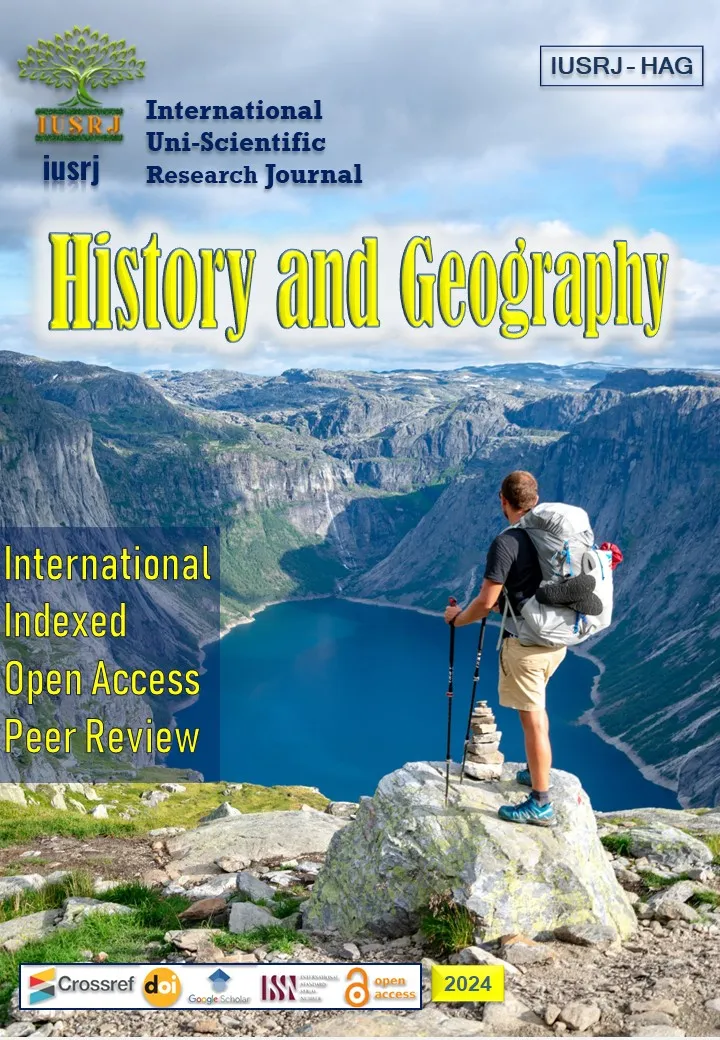Reading in the book of Musa Al-Moden, which is tagged with the Ghamara tribe: History, Man and Space
Regional history is of great importance because it seeks to introduce the region and achieve economic, social and cultural development, by restoring the local regional heritage and history. Especially as he walked the path of “rehabilitating the subject of history, especially in its new regional and heritage section, by all officials, as well as by cadres, university professors and research centers in order to confront the challenges of globalization, which constitute a factor of extinction and a survey of all the ancient cultural and historical constants.” Such as building, customs, traditions and the arts of watching, which carry the values of freedom, equality, tolerance, brotherhood and creativity, and they are practices rooted in the history of our region away from the objectification and commodification of history for the purpose of entertainment and with it the folklore of those components, which inevitably leads to the erasure of identity and memory and then open the door to consuming the identities and memory of the dominant other , and even celebrating it as an alternative to our neglect of our ancient and vast treasures, and my work on the book in general has focused on summarizing the most important ideas explained by the historian Musa Al-Moden, while making and highlighting some observations.
Keywords:
Musa Al-Moden, Ghamra tribe, reading in the history books.
[1] Abderrazak Saidi, Oases of Draa-Tafilalet Heritage and Development: Manifestations, Extensions and Opportunities for Valuation, A Contribution to Highlighting Regional History and Preserving Memory, First Edition 2019, Article by Abderrazak Saidi, Regional History and Local Heritage: The Birth of Regional History in Morocco, Backgrounds and Premises from pp. 12 to p. 31, p. 13.
[2] Musa Al-Mouden, The Ghamara Tribe: History, Man and Domain, published by the High Commission for Veterans of Resistance and Members of the Liberation Army, First Edition 2020, p. 17.
[3] Abd al-Rahman Ibn Khaldun, Muqaddimah Ibn Khaldun, edited by Magdy Fathi al-Sayed, Dar al-Tawfiqia for Heritage for Printing, Publishing and Distribution, 2010, p. 144.
[4] Rahal Boubrik, The Time of the Tribe of Power and the Management of Violence in Sahrawi Society, Dar Bouregreg for Printing and Publishing, First Edition 2012, p. 9.
[5] Hedi Haraoui, Tribe, Feudalism and the Makhzen: A Sociological Approach to Modern Moroccan Society 1844-1934, East Africa 2010, p. 65.
[6] Mohamed Kettani, Encyclopedia of Terminology in the Arab Religious, Scientific and Literary Heritage, Casablanca, Dar Al Thaqafa Publications, 2014, 1951/2
[7] Musa al-Mouden, M.S., p. 19.
[8] Al-HaadJ. Harawi, M.S., p. 51.
[9] Musa al-Moden, M.S., p. 23.
[10] Musa al-Moden, M.S., p. 83.
[11] Ibrahim Mohamed El Saadawi, Studies and Research on Africa and the Arab-Mediterranean Field, Part Two, 2013, p. 901-902.
[12] Musa al-Moden, M.S., p. 95.
[13] Masari Muhammad Al-Arabi, Muhammad bin Abdul Karim Al-Khattabi from the tribe to the homeland, Arab Cultural Center, first edition, Al-Bayda 2002. p. 9.
[14] Rod Bert Kunz and Rolf Dieter Müller, The War of Poison Gases in Morocco, Abdelkrim Al-Khattabi in the Face of Chemical Weapons, translated by AbdelaliAl-A. Marrani, first edition, Rabat, 1996, p. 1.
[15] Musa al-Moden, M.S., p. 99.
[16] Muhammad Alami, Leader of the Countryside Muhammad ibn Abd al-Karim al-Khattabi, Atlantic Publications, second edition, al-Bayda, undated, p. 7.
[17] Rolf, Diepeter Müller, M. S., P. 1.
[18] Kharchish Muhammad, Rural Resistance, Sheraa Series, No. 22, 1997. p. 67.
[19] Bouayachi Ahmed, The Rif Liberation War and the Stages of Struggle, p. 48.
[20] and Rolf Dieter Müller, M. S., p. 2.
[21] Masari Muhammad Alarabi M.S., p. 9.
[22] AlIdrisiAli, Abdul Karim Al-Khattabi The Besieged History, Publications of Tarzan ADrive, Second Edition, 2010, p. 31.
[23] BenAzzouz Hakim Mohamed, The Rural Revolution, Abdelkhalek Taris Foundation for Culture and Thought, Rabat, 1983, p. 39.
[24] Muhammad Alami, M.S., S. 22.
[25] Ibn Azzouz Hakim Muhammad, M.S., p. 53.
[26] Assa A.Hamad, The Moroccan Miracle, First Edition, Beirut, 1974-1975, p. 173.
[27] Butebqala Al-Tayeb, Abdul Karim Al-Khattabi - the Rif War and World Public Opinion, Sheraa Series, No. 14, 1996, p. 6.
[28]
[Mohammed Alami, M.S., p. 7.
[29] Muhammad Alami, M. S., P. 7.
[30] Musa al-Moden, M.S., p. 108.
[31] Musa al-Moden, M.S., p. 183.
[32] Musa Al-Moden, M. S., P. 323.
[33] Abd al-Razzaq al-Saidi, M.S., p. 25.
[34] Abd al-Razzaq al-Saidi, M.S., p. 25.
[35] Abdul Razzaq Al-Saidi, Proceedings of the Symposium of the First Forum for the Arts of Spectacle in the Draa-Tafilalet Region - Cultural Heritage and Civilized Appearance - Al-Jurf, Publications of the Palm Space Association for Development and Codification of Local Heritage in Al-Jurf, First Edition, March 2017, p. 2.
[36] Abdul Razzaq Al-Saidi, M. S., p. 27.
Citation
Al-Safi Abdul Razzaq (2022), Reading in the book of Musa Al-Moden, which is tagged with the Ghamara tribe: History, Man and Space. IUSRJ International Uni-Scientific Research Journal (3)(1),3-7. https://iusrj.org/articles/doai202201062316Call for Paper

We are going to launch a new Volume, 15th of next Month of peer-reviewed OpenAcess journal publishing original research articles. IUSRJs' publish innovative papers, reviews, mini-reviews, rapid communications and scheduled to monthly. For this purpose, we would like to ask you to contribute your excellent papers in IUSRJs'. Your comments will help us improve the quality and content of the journals. The journals accepts Review Articles, Original Articles and Short Communications. Brief Report, Books Review, Thesis Submit your valuable work: Submit Now Submit your article through : [email protected]
